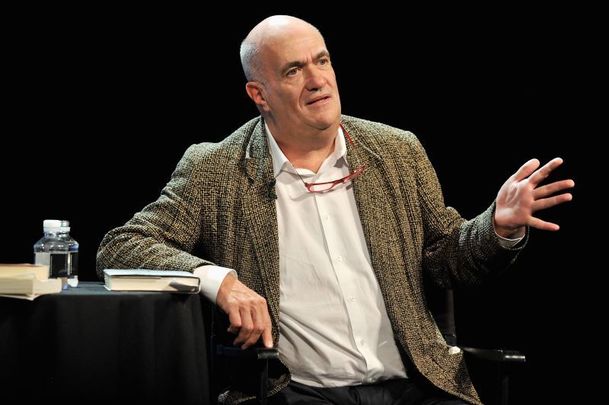Colm Tóibín, Shamus Khan, and Sucheta Mahajan will discuss whether we can "stop COVID-19 from making social inequality worse than ever?"
Trinity Long Room Hub Arts and Humanities Research Institute in the latest in the Rethinking Democracy workshop series will discuss "How is inequality exacerbating the COVID-19 crisis worldwide? Can COVID-19 policy be framed to avoid making social inequality worse? How do we prepare for future public health disasters?"
Rethinking Democracy | INEQUALITY‘They tell us corona-virus is a great leveller. It’s not. It’s much much harder if you are poor. How do we stop it from making social inequality even greater.’ – Emily Maitlis, BBC Newsnight Racial and ethnic minority communities are disproportionately affected by Covid-19. They are more likely to have the underlying health conditions that make the virus fatal. They are also more likely to live in poor accommodation and work in lower paid frontline jobs. Migrant workers as well as low income, homeless and refugee populations are likewise particularly vulnerable. The economic fallout from the pandemic will hit these groups the hardest. Far from being a ‘great leveller’, Covid-19 is exacerbating existing structural inequalities. Policies formulated to respond to the immediate pandemic and mitigate its lasting consequences could deepen existing divides. Or, they could be designed to bring about radical change, and produce fairer societies. The third in a five-part series, this workshop will interrogate the role of inequality in the Covid-19 public health emergency. Our speakers will explore issues related to class, gender, race, sexuality and religion as well as attempts to assign blame and scapegoat. Looking to the future, they will also discuss the need for a broad project of and commitment to equality. The floor will then be open for participants to respond: to ask questions and to widen the parameters of the conversation.
Publiée par Trinity Long Room Hub Arts and Humanities Research Institute sur Mercredi 13 mai 2020
The Trinity Long Room Hub Arts and Humanities Research Institute's latest in the Rethinking Democracy workshop series, organized in partnership with the Society of Fellows and Heyman Center for the Humanities at Columbia University, has been organized in response to the COVID-19 crisis.
This afternoon they as "Can we stop COVID-19 from making social inequality worse than ever?"
This installment in the series centers on the fact that COVID-19 is not universal. Reflecting fundamental inequalities in our societies, it is hitting some much harder than others. People are dying at very different rates in socially patterned ways.
Speakers will explore issues related to class, gender, race, sexuality, and religion as well as attempts to assign blame and scapegoat.
Looking to the future, they will also discuss the need for a broad project of, and commitment to, equality. The floor will then be open for participants to respond, ask questions and widen the parameters of the conversation.
The speakers are:
Colm Tóibín: an award-winning Irish novelist, short story writer, essayist, playwright, journalist, critic, and poet. His works include Brooklyn (2008), The Empty Family (2010) and The Master (2004). He is currently Mellon Professor in the Department of English and Comparative Literature at Columbia University.
Shamus Khan: Chair and Professor of Sociology at Columbia University. He writes on culture, inequality, gender, and elites. In recent response to the school closures, he developed the Youth Remote Learning online platform to engage students who are on hiatus from traditional classrooms.
Sucheta Mahajan: Professor at the Centre for Historical Studies in Jawaharlal Nehru University, New Delhi and a former Trinity Long Room Hub Visiting Research Fellow. She works on the history and politics of the twentieth century, movements for social change, connected histories of independence and partition, and the practice of oral and public history.
The workshop will be live-streamed on the IrishCentral's Facebook page at 4:30 – 6pm GMT, Wednesday, May 13, 13 May 2020.




Comments